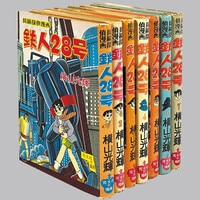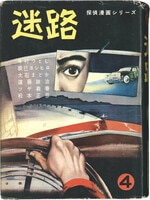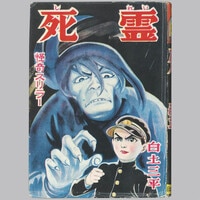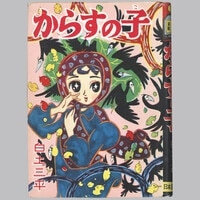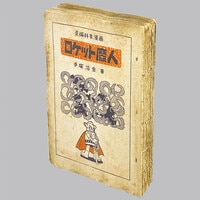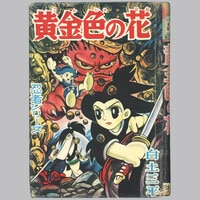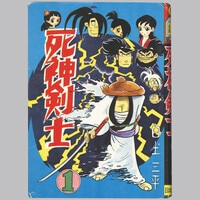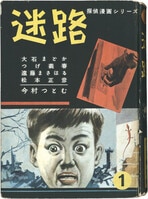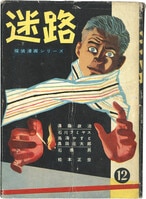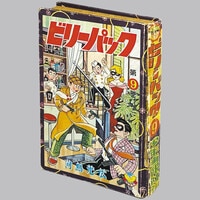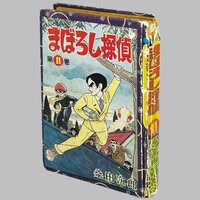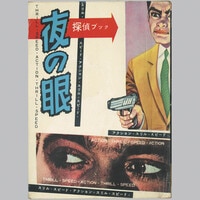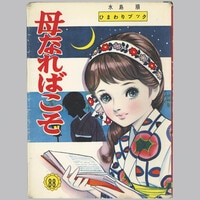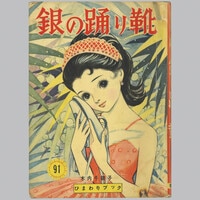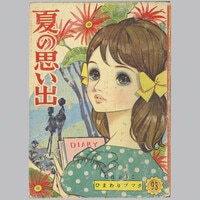(item number) 1007
(title) Wakagi Shobou/ "Meiro 2(16)"
(maker) Wakaki Shobo
(the date of issue) 1960(S35)02.05
(size) A5
(sheets) 192P
(side note) With cover
(Condition Rating) 6
(detailed) Kashi-hon, discolored and stained, folded/torn/chipped/damaged cover, water staining and wrinkling from cover to text block, vinyl cover marks on inner front (pages 2 & 3), slip pasted to inside back cover, minor tear at bottom
(starting bid price) 100,000 yen
(comment) A receipt has been attached to the back endpaper
Stains on the main body (back cover) due to water marks
Yoshiharu Tsuge "Old Book and Girl"
Hiro Fukai "That Night's Work"
Kenji Onozu "Risking My Life"
Tsuge Tadao "Blizzard"
Stains
Shotaro Okuda "Courage"
Yoshiharu Tsuge "Manga Essays Part 4: My Poor Days"
Tsuge Tadao "Mountain Dog"
Moe Kano "Bearded Detective"
Noboru Ishiguro "Notebook of Fresh Blood"
The creation of "Ghost Chimney" and creative impasse
As Tsuge himself said, "It was around the time I drew 'Ghost Chimney' that I suddenly became unable to write," this work was a major turning point in his creativity. Freed from the long-form tendency peculiar to rental manga, he was able to freely incorporate his own pessimism and fantasy, but on the other hand, after completing the work, he lost the creative energy he had had up until then.
In 1959,
・ His writing system was limited to short stories published in "Meiro".
・ His experience of being pressed for deadlines and not being able to come up with a story, leading to a threat of "compensation" when the advance notice was canceled.
・ His boarding house owner invited him to play mahjong, and these combined to cause him to develop a "deadline phobia" and further rest his writing.
A turning point in his career as a writer.
"Ghost Chimney" is not just one of Yoshiharu Tsuge's short stories, but a work that holds the essence of his work in three ways:
1. Freedom from the constraints of rental manga.
2. The collapse of his self-definition -- from "short story writer" to "writer".
3. The beginnings of his writerly style, which focuses on loneliness and fantasy in his later "travel stories" and his "Garo" period. Pessimism and fantasy are the medium through which he reveals his inner world, while at the same time laying the foundation for his subsequent masterpieces.
"Ghost Chimney" is a "starting point" and "crossroads" in Yoshiharu Tsuge's work, and is an important work that determines his subsequent manga expression and his position as a writer.
[Meiro [2] (Maze [16])]
"Maze" changed its name to "Meiro" in 1960, the second year since its launch, and ceased publication after publishing five volumes (the first 19 issues from "Maze"). The editing of the numbers during the "Meiro" period was entrusted to Tsuge, who contributed his work as well as the cover, editorial notes, and cuts that accompany columns. "Used Books and Girls," included in the second volume of "Meiro," is a romantic story about the interaction between a student who frequents a used bookstore and the daughter of the store owner. The slightly bittersweet content is a good work that combines Tsuge's lyricism and entertainment. It was so well-made that a rewrite was later published in "Monthly Garo," but even then there were no changes to the content (Kubo).
128TsugeYoshiharu
z128 |















